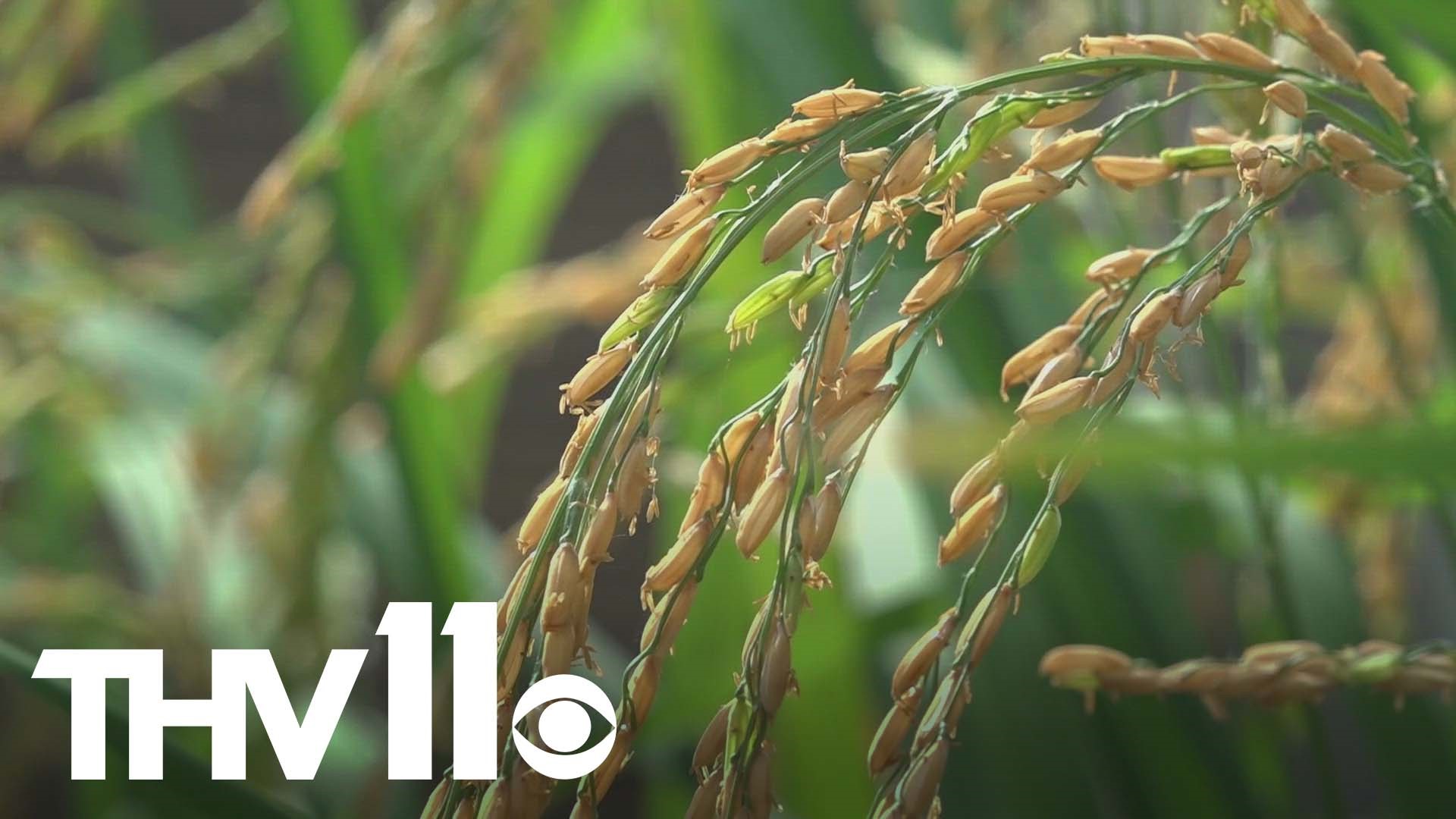STUTTGART, Ark. — Agriculture is prominent in Arkansas as farmers can be found statewide, including in Stuttgart.
The city is known as the rice capital and is home to the Dale Bumpers National Rice Research Center.
“We do tremendous genetics, genomics, production research, for consumers for the industry,” said Jack Okamuro, a National Program Leader for Plant Biology with the US Department of Agriculture.
The USDA works closely with Arkansas farmers to make sure they have the rice grows well in our backyard.
“We want to ensure that our rice growers have a resilient seed," Okamuro said. "And can choose the best seeds wherever they're located and whatever the climate challenges."
The research done by the USDA has helped farmers like Tim Ralston.
“A lot of the varieties that we grow originated here from this research they do," Ralston said. "I don't know what our deal would look like without it."
Ralston owns Ralston Family Farms in the Arkansas River Valley. The rice they produce is sold in 7,000 stores nationwide.
“We went to market in 2018, and we've been very blessed,” Ralston said. “We take a lot of pride in the product.”
While Arkansas is the No. 1 rice producer in the United States, India is the largest exporter despite recently banning "non-basmati" white rice exports.
The recent ban could be good news for local farmers.
“It allows Arkansas producers to fill that void,” Ralston said. “Some people are buying those varieties because they're on the shelf. This may make them reach out and buy something else for a change.”
While Ralston isn't sure how much they'll need to make and what the future will look like, he’s ready for anything.
“We're always up for a challenge,” Ralston said.
Ralston's rice farm is 30 days away from harvest, and he said they're keeping a close eye on the heat.

